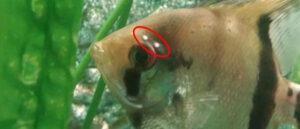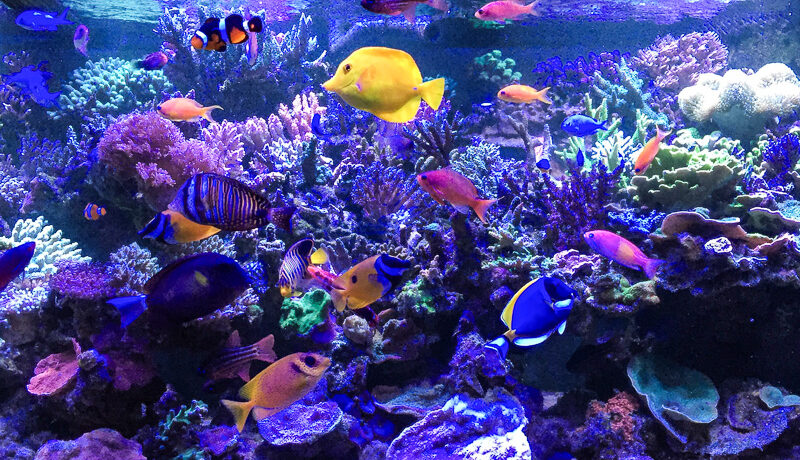95% of health problems experienced by fish, both freshwater and marine, relate to poor water quality. Problems which can be experienced may be Viral, Bacterial, Fungal or Parasitic. All are able to be treated using commercially available treatments, coupled with good maintenance and improved feeding.
Below you will find a broad outline of the health problems which can be experienced by Marine Fish. For more information, contact us. As with any illness experienced by humans or animals, it is important to act swiftly once you notice any symptoms, to improve the chances of a successful outcome.
For more information about the correct water parameters for your Marine Fish, Please contact us

Symptoms
Symptoms to look for include:
Fish behaving abnormally
Erratic swimming
Keeping to the top or bottom of the tank
Scratching or scraping themselves on objects
Shimmying / Flashing
Poor balance
Changes to fins
Eroded or torn
Colour changes
Clamped (not fanned out)
Changes in appetite
Loss of appetite
Emaciation
Changes to skin
Abnormalities
White spots
Cotton like tufts
Lesions, grey patches, bleeding
Changes to eyes
Eyes appear cloudy
Eyes are protruding
Changes to body shape
Swelling or bloating of stomach
Parasites
The two most common parasites that affect marine fish are marine white spot (Cryptocaryon irritans) and marine velvet (Oodinium ocellatum). These are best treated with copper based remedies.
Caution, do not use copper when invertebrates are present.
Other parasites that may affect marine fish are Brooklynella hostiles, and Uronema marinum. These can be treated with a formalin based multi cure, but be sure to remove any invertebrate from the system prior to treatment. An alternative is to move sick fish to a ‘hospital’ tank and treat them there.
Bacteria
Marine fish suffer from similar bacterial problems as freshwater fish (Vibrio is the most common). The most effective method of treatment is to use triple sulpha.
Viral
The most common viral problem encountered by marine fish is lymphocystis, which mainly affects angelfish and butterflyfish. It is not lethal and can usually be reversed by reducing stress. The most effective ways to reduce stress are to improve water quality and ensure that the correct feeding regime is followed.
Fungus
This is usually associated as a secondary infection to bacterial problems, and can be treated with malachite green or formalin based products in a tank without invertebrates.
Important advice re Dosages
Always follow the manufacturer’s instructions strictly, and never deviate. For any questions, contact your Pet or Aquarium retailer.

